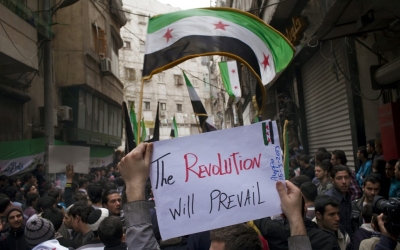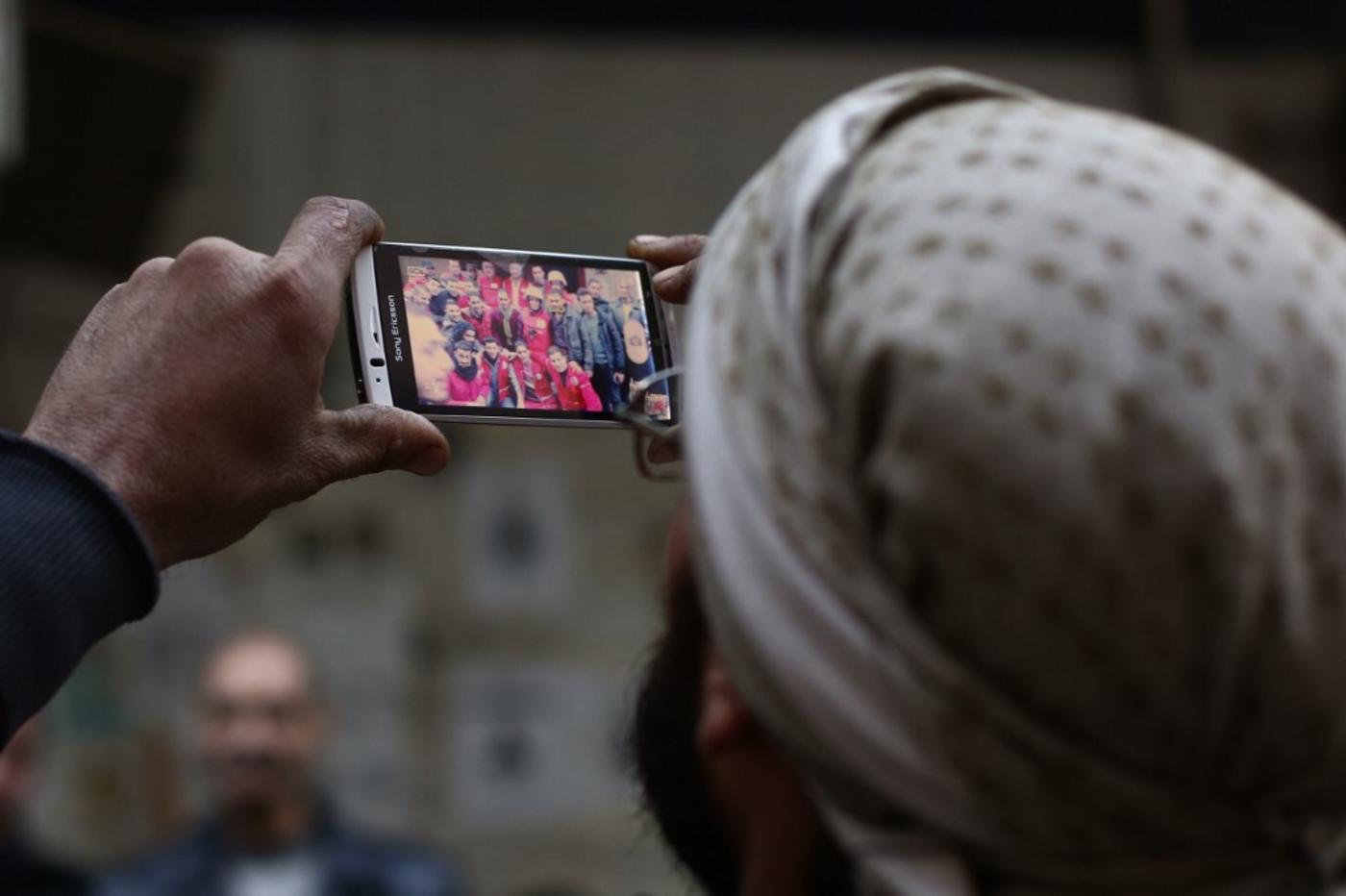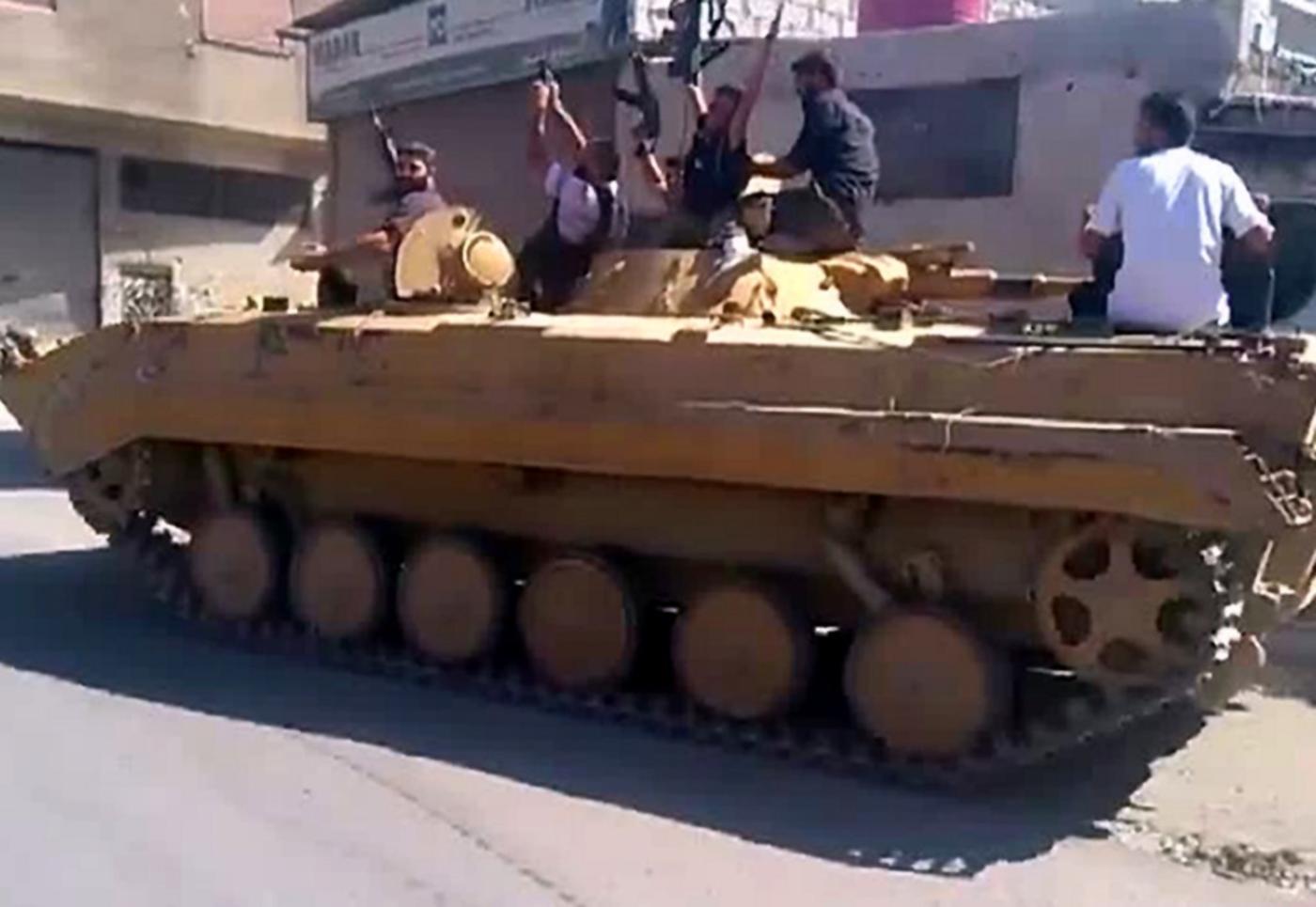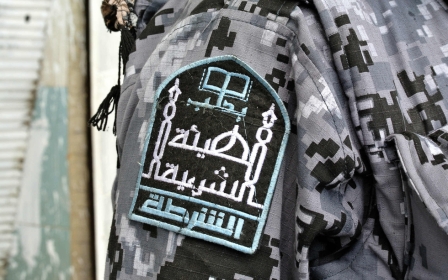Syrian activists say pro-rebel propaganda campaign may have been counterproductive
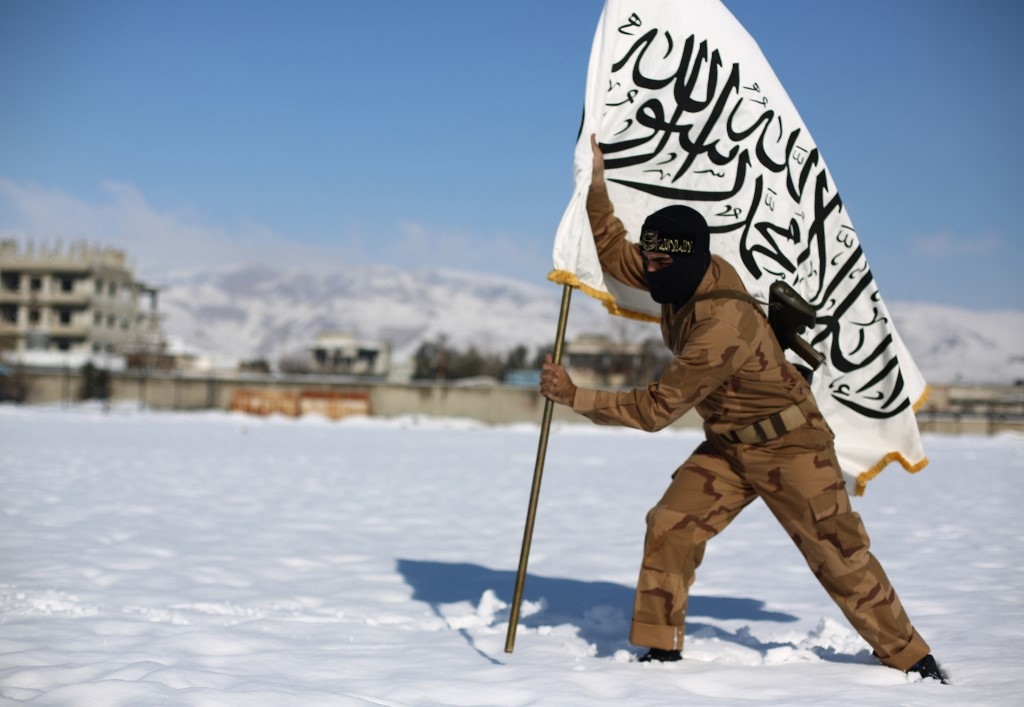
Syrian opposition-aligned journalists and activists have defended their involvement in media projects covertly backed by western governments, telling Middle East Eye that they were heavily reliant on foreign funding to report on the country’s civil war.
They say that western support has helped them to counter pro-government reporting by Syrian state media and from Russian and Iranian media, and to continue working even while living under siege and bombardment.
Others said that support for the opposition had not gone far enough, speculating that a decisive international military intervention earlier in the conflict could have brought down Syrian President Bashar al-Assad and averted years of bloodshed.
'The projects fit the ideas of more than 11 million Syrians who believe in the revolution and toppling Syrian President Bashar al-Assad'
- former opposition media director, Istanbul
But some said they felt deceived after learning about the extent of western backing for grassroots media activism, which was often concealed from those involved in the work on the ground, and described the consequences as “calamitous” for the country.
One senior activist, speaking on condition of anonymity, also questioned the effectiveness of the propaganda campaign, suggesting that it had been counter-productive because the often heroic depiction of Free Syrian Army fighters in the media did not reflect reality.
New MEE newsletter: Jerusalem Dispatch
Sign up to get the latest insights and analysis on Israel-Palestine, alongside Turkey Unpacked and other MEE newsletters
“Initially, the FSA fighters who had defected from the Syrian army were seen as heroes leading the armed struggle, but corruption spread among their ranks,” said the activist, who was involved in organising protests in Damascus in 2011.
“Media projects continued to portray the FSA as superheroes which led to a loss of confidence among the locals. The news had become contrary to reality so it had counterproductive results.”
Middle East Eye approached Syrian journalists and activists for comment after obtaining leaked documents which reveal how the British government established a covert media network within Syria with the aim of reinforcing popular opposition to both the government and hardline militant groups.
Most would only speak on condition of anonymity or declined to speak because of the sensitivity and secrecy surrounding the work.
The project documents, which date from 2014, involved the “selection, training, support and mentoring of Syrian opposition media activists”. Other documents show that British contractors were involved in training spokespeople and running media offices for opposition groups.
The US and Canadian governments also provided funding for the projects, while other western countries were involved in backing opposition-aligned media, according to journalists spoken to by MEE.
Many Syrians turned spontaneously to media activism as anti-government protests were brutally quashed in 2011, pitching the country into civil war and prompting calls from western nations for Assad to step down.
Syrian state media initially denied that protests were taking place, so activists instead posted photos and videos on social media.
'No independent work in Syria'
The former director of one opposition outlet in Istanbul told MEE that the aims of the British-backed initiative were in tune with the aspirations of millions of Syrians opposed to Assad’s rule.
“The projects fit the ideas of more than 11 million Syrians who believe in the revolution and toppling Syrian President Bashar al-Assad," he told MEE, speaking on condition of anonymity.
'We need support in order to be able to live. It is not necessary to take sides in the financiers' agendas. Is there an independent media outlet in this world?'
- former reporter in Eastern Ghouta
The director of another US-funded media outlet, also speaking on condition of anonymity, told MEE that he sometimes met with US diplomats to discuss the work.
“They pay a lot, and it is natural that they want to know where their money goes,” he said.
“The goal is to build an [independent] media that is anti-Assad and anti-extremist, and this fits my company, regardless of the objectives of the supporting country.”
Several journalists told MEE that they had little choice but to work for western-funded outlets, but defended the integrity and independence of their work.
Samer al-Aswad, the director of the US-based Step News Agency, told MEE that there was “no independent work inside Syria”, but said it was possible for organisations to set their own agenda with bold reporting and by financing themselves through advertising revenue.
“When the number of followers increases, you become strong, and then you can control the funders,” he said.
One Idlib-based reporter for a US-backed radio station said that reporters based in Eastern Ghouta, a formerly opposition-controlled area on the outskirts of Damascus that was besieged for years until falling to government forces in early 2018, had been earning about $800 a month.
"I have a family and children. We need support in order to be able to live. It is not necessary to take sides in the financiers' agendas. Is there an independent media outlet in this world?” she said.
The director of another news agency that received US funding in Eastern Ghouta said that many involved in media work had become dependent on inflated wages even while not knowing who was paying them.
'We thought these organisations were independent and revolutionary. Please do not mess with our memories'
- Idlib-based journalist
“First there is the blockade and rising poverty, and then funding makes you a wealthy man,” he said.
“Then the financing stops and you fear losing your wealth and your status. And when this happens you find unknown entities that finance you according to their whims.”
The British documents acknowledge that journalists working on the projects could be exposed to danger if the identities of their backers were known.
One journalist told MEE she had no idea that the media outlet she worked for in 2012 had received funding from the UK.
“We have been deceived,” said the Idlib-based journalist. “We thought these organisations were independent and revolutionary. Please do not mess with our memories.”
Several directors complained that western support had decreased as the balance of power in Syria had tipped in favour of the government following Russia’s entry into the war on Assad’s side in 2015 at the exact moment when an effective opposition counterpropaganda campaign was most needed.
They said that confidence in locally-run media projects has also been undermined by reports of corruption and mismanagement.
“My company received training from British academics. We ran a good business, but the trust of the financiers was undermined by the presence of fake local media outlets that wasted funding,” said the former director in Istanbul.
“It is illogical for international support to continue to shrink, because this has created a vacuum that has strengthened the role of Russia. We are facing massive media outlets, governmental, Russian and Iranian, and we really need more support.”
But he said was aware of at least 10 local media outlets in Syria still benefiting from US funding.
“Projects are currently being prepared targeting the Iranian role in the Middle East,” he added.
Some journalists questioned where resources which were supposed to buy media kits for reporters on the ground had ended up.
One journalist in Daraa in southern Syria told MEE that he had worked for two years with equipment which he had bought himself because he had not been provided with kit by the western-backed agency for whom he was working.
'No protection plan'
Activists and journalists have been threatened by all sides during the war, with many tortured and killed by state security, others abducted and killed by the Islamic State group and other hardline militants, and many forced to flee the country and seek asylum.
Mazen Darwish, the head of the French-based Syrian Center for Media and Freedom of Expression, which supports Syrian journalists, said his organisation had received 715 requests for legal support in 2019.
Aswad, the director of the Step News Agency, said that IS had killed two of its journalists while four others had been arrested by militants in Idlib.
"The risk increases when journalists report violations by all the parties to the conflict," Aswad said.
But several journalists told MEE that they did not consider the dangers of their work to be any greater than those faced by other civilians.
"Obviously, there has been no protection plan for journalists or civilians. Everyone has been exposed to death and arrest," said a journalist in government-controlled Hama.
"Most people in Hama know that Assad could only have been toppled with a comprehensive international military solution, which could have saved the country from destruction," she added.
Some journalists also said that the rise of media activism had fuelled the conflict, because it encouraged people to post material on social media without checking whether it was accurate, as well as providing a platform for sectarian and divisive views.
“Someone comes and takes pictures and publishes the news unconsciously without the slightest criteria of responsibility,” a Syrian journalist from the government-controlled southern city of Sweida told MEE.
“Citizen journalism is one of the biggest calamities that has hit the country.”
Middle East Eye delivers independent and unrivalled coverage and analysis of the Middle East, North Africa and beyond. To learn more about republishing this content and the associated fees, please fill out this form. More about MEE can be found here.


